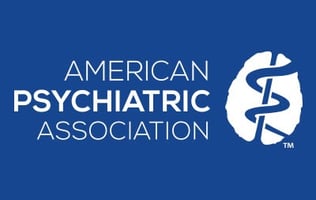DEA Delays Proposed Telehealth, Buprenorphine Rules

The U.S. Drug Enforcement Administration (DEA) has delayed finalizing two proposed rules that were set to go into effect after the COVID-19 public health emergency expires on May 11. The proposed rules, if finalized, would affect how health professionals implement telehealth services and prescribe certain controlled medications, including medications for treating attention-deficit/hyperactivity disorder and opioid use disorder (OUD). The DEA received 38,000 comments in response to the proposed rules, which were announced on February 24. Instead of finalizing the rules, the DEA, in concert with the U.S. Department of Health and Human Services (HHS), has submitted a draft temporary rule to the Office of Management and Budget titled “Temporary Extension of COVID-19 Telemedicine Flexibilities for Prescription of Controlled Medications.”
If finalized, the proposed rules would extend certain flexibilities for telehealth services after the COVID-19 public health emergency expires. Yet in several ways the proposed rules are more restrictive than what the public health emergency has allowed, thus garnering a backlash from stakeholders in public health. For example, the first proposed rule (Docket No. DEA–407) would prohibit health professionals who offer telehealth services from prescribing Schedule II controlled substances such as methylphenidate (Ritalin), mixed amphetamine salts (Adderall, etc.), and opioid pain relievers (Vicodin, Oxycontin, etc.) and Schedule III-V narcotics other than buprenorphine without examining patients in person first.
The second proposed rule (Docket No. DEA–948) would expand the situations in which physicians may prescribe controlled substances through the internet for legitimate medical conditions even without an in-person evaluation as long as the medications have been approved for treatment of OUD and the physician is able to conduct a patient evaluation. To date, buprenorphine is the only Schedule III-V medication approved by the U.S. Food and Drug Administration for this purpose. However, patients would have to be examined in person by the physician within 30 days, have a referral from another practitioner, or be examined by the physician via telehealth while the patient is in the physical presence of another DEA-registered health professional.
APA is among the stakeholders who sent comments to the DEA about the proposed rules. In its two responses to the proposed rules, APA recommended that the DEA balance common-sense safeguards for DEA enforcement without decreasing access to lifesaving treatment and remove the in-person requirements for the prescribing of buprenorphine for the treatment of OUD via telemedicine when clinically indicated.
In a statement, DEA Administrator Anne Milgram said, “We take those [38,000] comments seriously and are considering them carefully. We recognize the importance of telemedicine in providing Americans with access to needed medications, and we have decided to extend the current flexibilities while we work to find a way forward to give Americans that access with appropriate safeguards.”
Milgram added that details about the draft temporary rule submitted to the Office of Management and Budget will become public after its full publication in the Federal Register.
For more information, see the Psychiatric News article “Telehealth Providers: Begin Planning Now for End of COVID-19 PHE.”
Don't miss out! To learn about newly posted articles in Psychiatric News, please sign up here.






